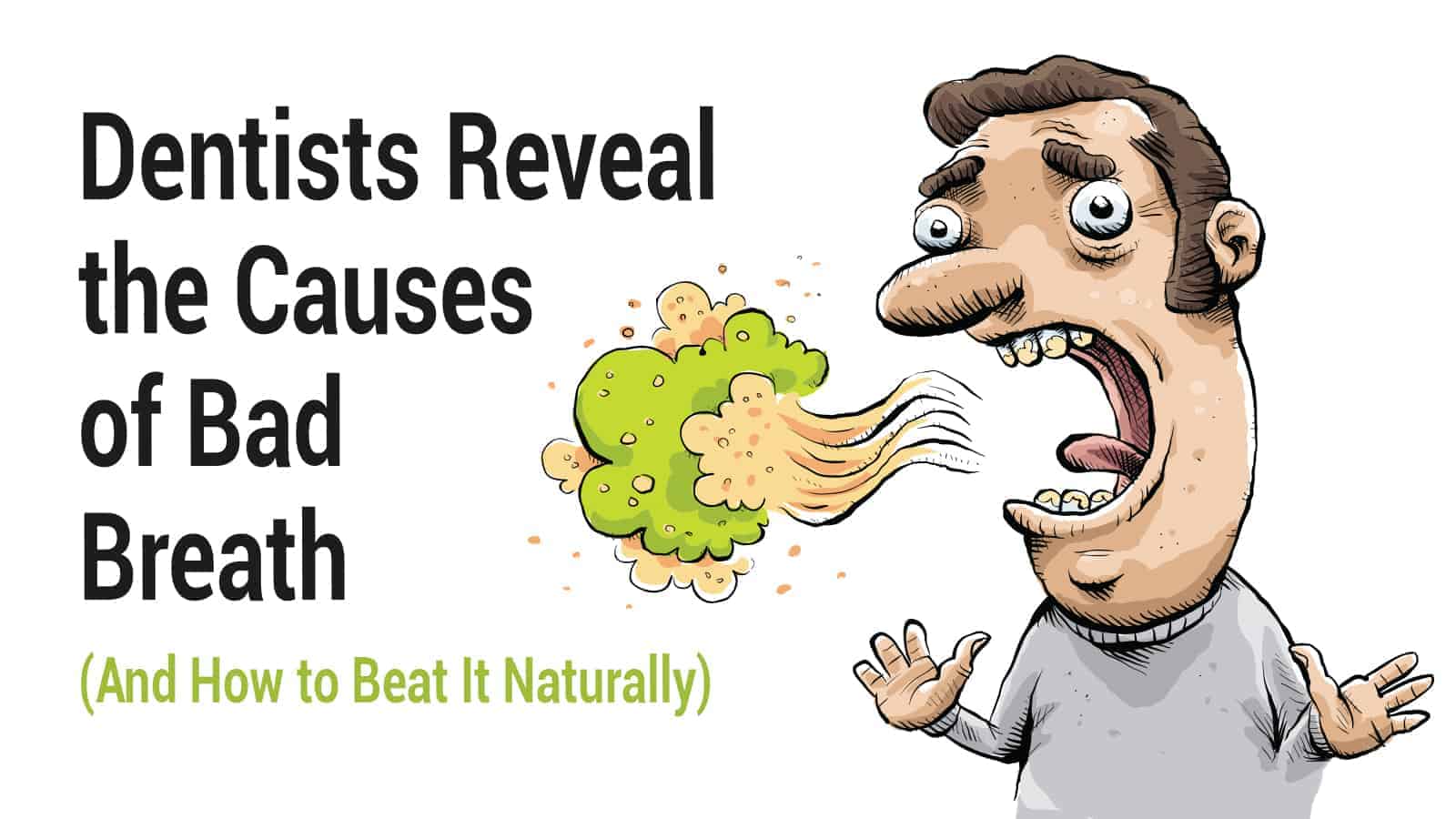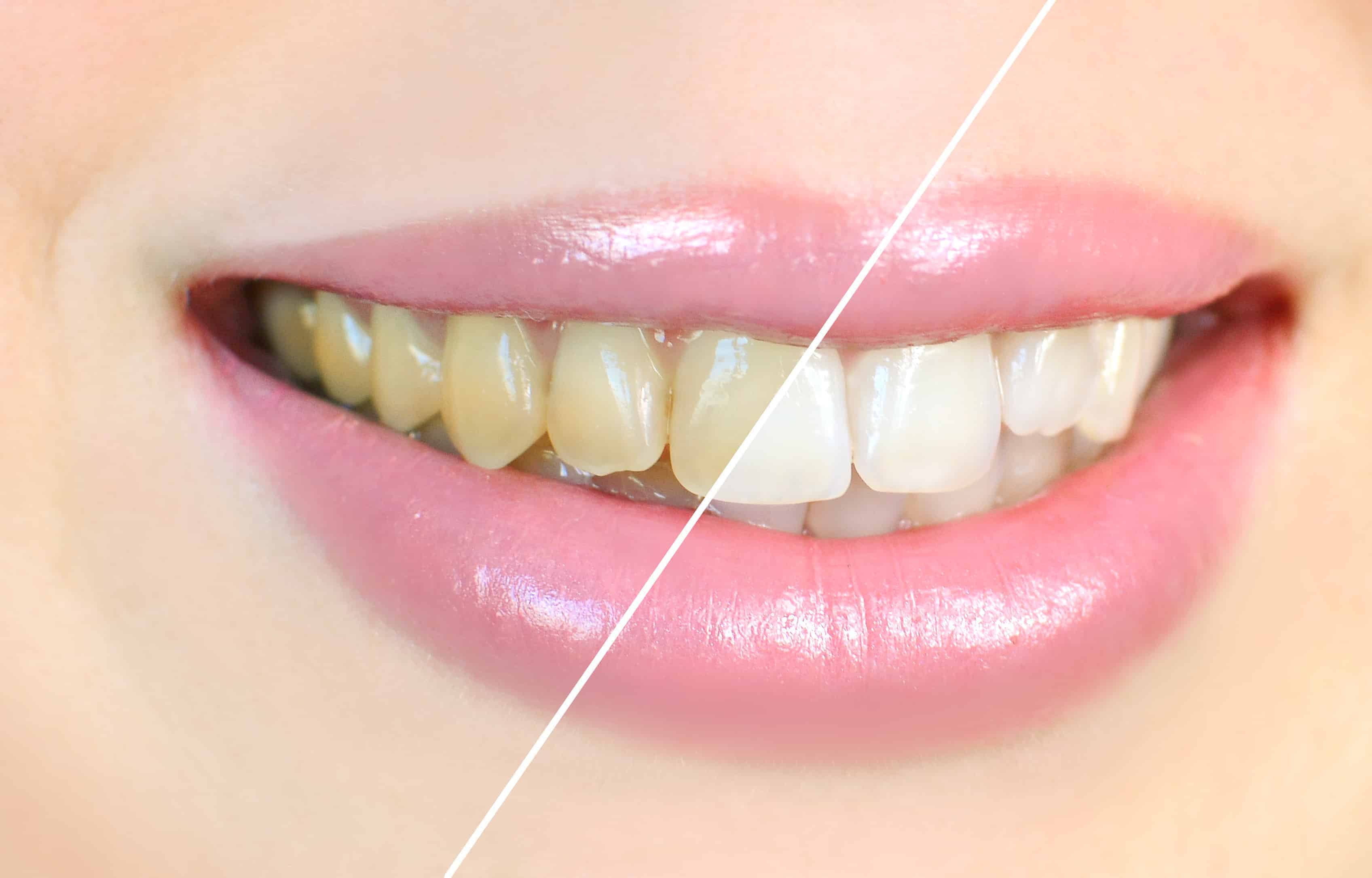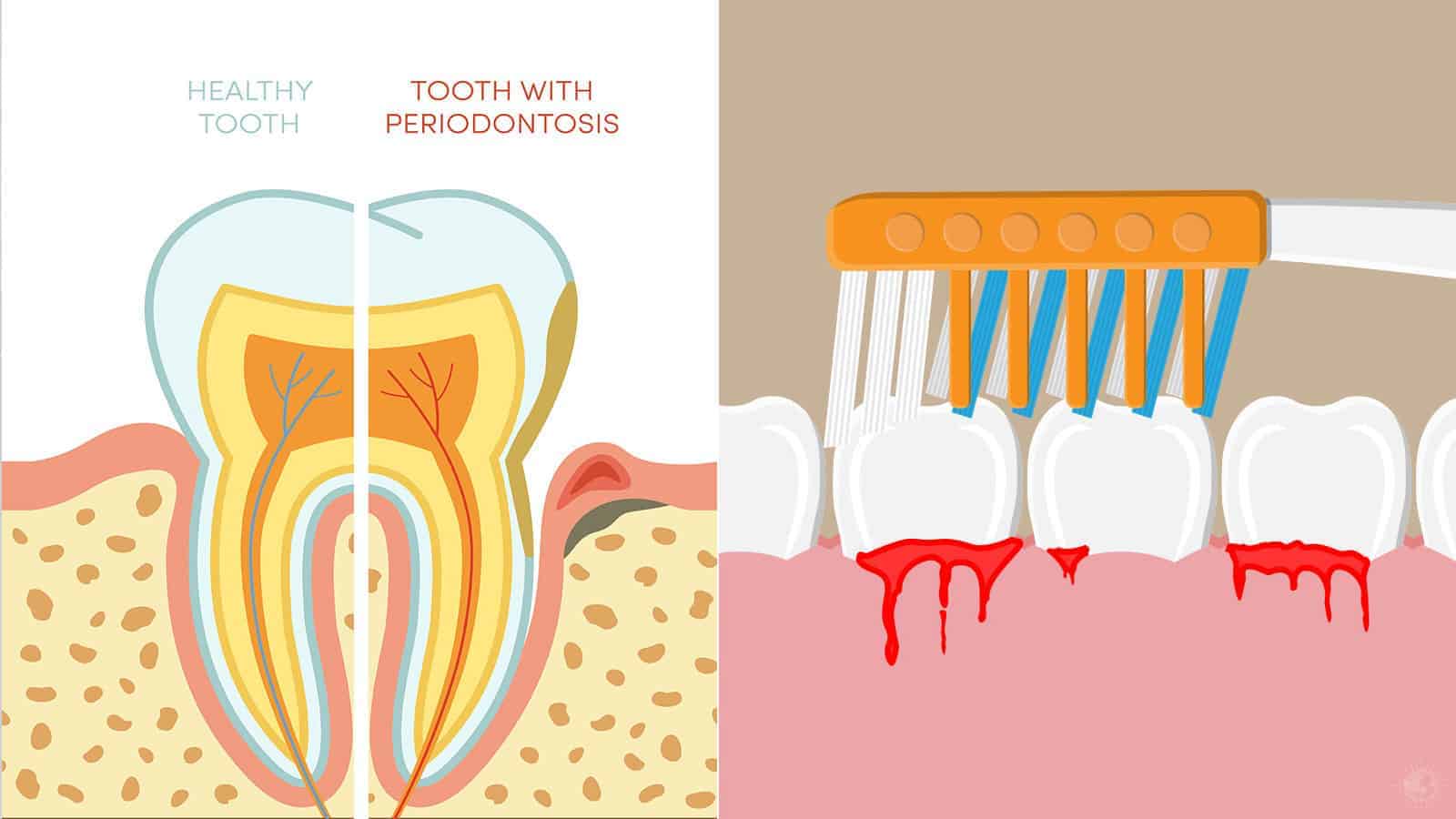Remember the thrilling myths of brave Medieval knights battling fierce dragons? These beasts could incinerate anything in their path with their fiery breath. No wonder people today refer to bad breath as “dragon breath.”
Bad breath, or halitosis, is a nuisance we all deal with, especially in the morning. Usually, brushing your teeth and rinsing with mouthwash will quench the evil dragon’s breath. Halitosis is ranked high with body odor as socially offensive. Nobody wants to be greeted with a blast of putrid breath as soon as another person opens his mouth.
Have you ever so discreetly puffed a quick burst of air into your closed hand to check your breath? It’s a safeguard we’ve all practiced before meeting someone or going on a date. If a bit of halitosis lingers, you probably carry mints or a travel toothbrush kit.
While it’s not unusual for most people to have bad breath in the morning, some people battle it chronically throughout the day. It’s easy to assume that someone with rank breath has poor oral hygiene, even though this may not be true. Are you constantly doing a breath check, worried that your breath may be offensive?
Common Causes of Bad Breath
Halitosis isn’t a respecter of persons and can plague even the most beautiful people. However, some people seem to have it chronically. What causes our mouth to become an unexpected source of stink?
Just like offensive body odor, halitosis is caused by a build-up of bacteria. Your mouth is filled with billions of good and bad microbes. When they die, a chemical reaction produces offensive smells that linger on your breath.
How do these microbes build up in your mouth? Are there ways to prevent it? Here are the most common causes of bad breath.
1. Dry Mouth
Why do you wake up in the mornings, and your breath smells like you’ve been chewing on a dirty gym sock all night? If you’re like most people, you probably sleep with your mouth open, and your breathing dries out your mouth and throat. It’s why your mouth may often feel cottony on awakening and you’re dying of thirst.
This inherent lack of saliva during sleep increases the bacteria that cause halitosis. Many prescription medications cause dry mouth, leading to chronic bad breath. Some medical conditions may also affect your saliva glands and cause these issues.
Have you noticed the abundance of irritating infomercials on television about prescription drugs? You’ll probably hear dry mouth mentioned as a common side effect. Talk to your pharmacist or healthcare provider if you suspect your medications cause dry mouth and foul breath problems.
2. Improper Oral Hygiene
There’s a good reason that your parents insist you brush your teeth after every meal and before you go to bed. Good dental hygiene keeps your teeth and gums healthy but also fights the bacteria that cause tooth decay and halitosis.
Brush your teeth with an effective toothpaste, and remember to floss daily. Consider using a refreshing mouthwash to complete your dental regimen. If you have chronic breathing problems, talk to your family dentist about a proper hygiene plan for you.
When was the last time you replaced your toothbrush? Did you know that your toothbrush can harbor bacteria after a while and can redistribute it in your mouth? Keep your mouth healthy and your breath smelling fresh by replacing your and your family’s toothbrushes at least every three to four months or right after an illness.
If you want to get a head start against fighting odor-causing bacteria overnight, don’t forget to brush and floss your teeth before you go to bed. Food particles cling to your teeth and gums and are notorious for causing the dreaded morning breath. Make sure as well to visit your dentist at least twice a year.
3. Using Tobacco Products
Here is another reason you should stop using tobacco today. In addition to causing cancer and a host of other health maladies, tobacco spoils your breath. Who wants to kiss someone whose breath smells like stale smoke? Even if you smoke or chew flavored tobacco, the burning process and chemical residue build up on your teeth and gums, producing putrid breath.
4. Eating or Drinking Certain Foods or Beverages
Have you ever guessed what someone had for lunch just by smelling his breath? Foods rich in sulfur, such as onions, garlic, cabbage, and broccoli, are often the culprit. Zesty spices, alcohol, and coffee can also lend an unpleasant scent to your breath.
Indigestion and acid reflux can also affect the way your breath smells. Stomach acids have a strong, disagreeable scent that can linger in your throat and mouth. Your healthcare provider can suggest ways of dealing with these digestive issues.
5. Infections and Illnesses
Infections in your mouth, gums, or throat can also wreak havoc on your breath. One of the tell-tale signs of sinus or ear infections is smelly breath. Tooth decay is another source of halitosis that needs medical attention.
If you have diabetes, you can often tell when your blood sugars are high by a strange, sugary smell to your breath. Many other diseases can cause halitosis, as well as some prescription medications. It’s worth mentioning to your professional healthcare provider.
How to Fight Bad Breath Naturally
Are you tired of fighting chronic bad breath? One of the bothersome symptoms of halitosis is that you often don’t realize it. Having smelly breath can hinder you professionally, socially, and romantically. People tend to avoid those who have halitosis.
While there may be health conditions requiring medication or treatment for chronic halitosis, most cases are an easy fix. Do you want to get rid of your dragon breath in a snap? Here are six natural remedies to kill the odor and freshen your breath.
1. Water
Since dry mouth is a major source of foul breath, your best line of defense is water. Certain medical conditions and sleeping with your mouth open can dehydrate your mouth and throat. Drinking 6-8 glasses of water will hydrate your mouth and keep the dreaded dragon breath at bay.
2. Proper Dental Hygiene
Combat odor-causing bacteria on your teeth and gums with thorough brushing when you awake and after every meal. Flossing and mouthwash can destroy microbes between your teeth and your mouth that you can’t reach. Consider using a tongue scraper to scrape away gently, smelly buildup on your tongue each day.
3. Mints to the Rescue
Have you ever wondered why manufacturers flavor most dental hygiene products with mint? It’s because these beneficial herbs are natural antibiotics and antifungals. If you notice your breath is a little funky, mint can eliminate the odors quickly.
Use fresh mint or try a dab of food-quality mint oil such as peppermint or spearmint. Not only will they create a sweet-smelling breath, but they can also promote good dental health and leave a refreshing taste.
4. Use a Little Lemon or Lime
The scent of citrus fruit is a quintessential refreshment for our senses. Did you know that lemon and lime juice can also freshen your breath? Wash a small piece of peel and chew on it for an emergency case of halitosis. Citrus oils kill odor-causing bacteria and leave a pleasant smell and taste in your mouth.
Instead of your usual mouthwash, try this citrusy blast. Add some fresh lemon or lime juice to a cup of warm water and gargle as usual. It will make your whole mouth tingle clean with a citrus-fresh breath you will enjoy.
5. A Two for Tea
Here is a natural remedy that makes green tea even more appealing. Did you know that your favorite cuppa can also combat foul breath? Green tea is loaded with antioxidants that benefit your body’s cells. It also acts as a natural antibacterial to destroy germs in your mouth that cause halitosis.
To refresh your breath, you can also make a quick green tea mouthwash for your morning dental routine. Pour a cup of brewed green tea into a sealed container and place it in the refrigerator overnight. Use it to rinse after you have finished brushing and flossing.
6. Another Shout Out for Herbs & Spices
Medical research continues to confirm the positive health benefits of many traditional herbs & spices. Among these benefits is their ability to destroy odor-causing bacteria in your mouth. Their antibacterial and antiseptic properties strongly defend them against microbes that cause dental problems and halitosis.
Did you know that the original purpose of garnishing a dish with parsley was for an after-dinner breath refresher? Many other beneficial herbs and spices are found right in your pantry, and you can use them to kill dragonbreath. When your breath needs an odor eliminator, chew on a couple of whole cloves, fennel seeds, or some star anise.
Final Thoughts on Taking Care of Managing Your Embarrassing Bad Breath
Do you want to avoid the embarrassment of having bad breath? Try adding these natural remedies to your regular dental routine. If you’ve done all you can and still have chronic halitosis, discuss it with your general dentistry specialist or professional healthcare provider.

















 Community
Community

